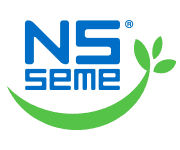SUNFLOWER DEPARTMENT
The main activity of the Sunflower Department includes: breeding – creation of highly productive inbred lines and hybrids with a high content of oil in the seeds, tolerant to dominant diseases and pests; creation of highly productive inbred lines and hybrids with altered oil quality, with increased protein content and altered quality oils for human and animal nutrition; resistant to certain groups of herbicides; creation of decorative type genotypes. Research includes creation and maintenance of inbred lines, testing of hybrid combinations in multilocation experiments, resistance to biotic and abiotic stress, as well as the use of innovative methods that are primarily based on biotechnological achievements; protection from diseases and pests – testing of phytopathogenic fungi and beneficial and harmful entomofauna, research into biology, thresholds of harm, resistance, suppression, potential use in suppressing harmful species and in breeding and seed breeding; cultivation technology – research in the area of the influence of different tillage systems and the development of new sustainable and ecologically acceptable sunflower cultivation systems; seed production – production and processing of seeds – production of quality seeds of parent lines and hybrid sunflower seeds, seed processing takes place according to the highest world standards, using modern techniques and technology, in order to ensure high seed quality and genetic purity.
The sunflower department has:
Department for oilseed rape, whose main activity is: breeding of oilseed rape and other, less cultivated oilseed plant species; maintaining the gene bank, creating highly productive hybrids of oilseed rape type “00”, with a high content of oil in the seeds, tolerant to dominant diseases and pests, extreme temperatures and drought. Creation of highly productive varieties of less cultivated oil species, tolerant to biotic and abiotic stress. Researching the possibility of using oil plant species for specific purposes; protection against diseases and pests – examinations of phytopathogenic fungi and beneficial and harmful entomofauna; agrotechnics – work on examining the impact of different cultivation systems on the most important quantitative and qualitative properties of rapeseed and less cultivated oil species; production and processing of seeds – the production of high-quality seeds of parent lines, varieties and hybrids of oilseed rape and other oil species is carried out using modern techniques and technology according to the highest international standards in order to ensure high seed quality and genetic purity.
Department for sugar beet, whose main activities are: activities on maintaining the genetic collection of sugar beet, research related to problems in the technology of growing sugar (cercospora, appearance of rubber and rotten beet, mineral nutrition); peeling the seeds of sugar beet, parsnip, sorghum, poppy, oilseed rape and other small-grained cultivated plant species.

